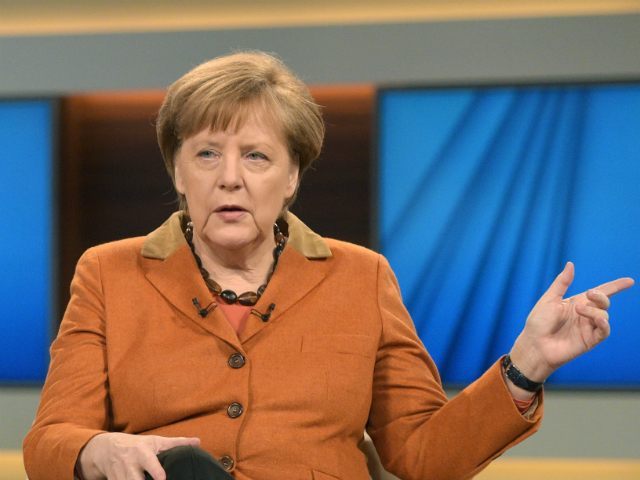With a passionate defence of her migrant policy, Chancellor Angela Merkel threw herself into one last campaign push on the eve of “Super Sunday” elections in three German states that risk weakening her.
Migration is the touchstone issue in the three votes – two in western states, and one in the east – with many people worried how Germany can cope with a refugee crisis that saw over 1 million migrants arrive in the country last year.
Merkel’s conservative Christian Democrats (CDU) have been losing support to the anti-immigration Alternative for Germany (AfD) party, which has profited from popular angst about migrants after her high-risk decision last year to open Germany’s borders to refugees
“There are situations in life – and this was the case last autumn – when you can’t hold a long debate on principles,” Merkel said, defending her decision. “People are suddenly there and need protection,” she told a CDU rally in Baden-Wuerttemberg, one of the three states voting on Sunday.
Already represented in five of Germany’s 16 regional parliaments, the AfD looks set to burst into three more on Sunday, campaigning on slogans such as “Secure the borders! Stop the asylum chaos!”
Now Merkel, in power since 2005 and facing a federal election next year, is trying to secure a Europe-wide solution to stem the flow of refugees. She alarmed many European Union leaders at a summit this week by gambling on a last-minute draft deal with Turkey to stop the migrant flow, and demanding their support.
WINE QUEEN
At the rally in Baden-Wuerttemberg, where the CDU candidate is trailing the incumbent Greens state premier in polls, she said European leaders were spending too long talking about the Turkey deal and that it was a sensible, cost-effective solution.
“That’s why I think this is absolutely right,” she said to applause.
Merkel must still seal the Turkey deal with EU leaders at their next summit on March 17-18. She will go into that meeting weakened if her party performs poorly in the state elections.
In Baden-Wuerttemberg, a CDU stronghold for over 50 years before turning to a Green-led coalition with the Social Democrats after Japan‘s Fukushima nuclear disaster in 2011, the Greens’ state premier is poised to pip his CDU rival.
In Saxony-Anhalt in the east, the CDU is poised to remain the largest party but polls put the AfD on as much as 19 percent support, and ahead of the Social Democrats (SPD), Merkel’s coalition partner in Berlin.
Rhineland-Palatinate, a wine-growing region, is shaping up as the pivotal swing state.
There, Julia Kloeckner, a 43-year-old former German “wine queen” who has positioned herself as a candidate to succeed Merkel one day, has seen her lead shrink and one poll this week showed her narrowly behind SPD incumbent Malu Dreyer.
Asked how she would prepare for the election results, Merkel told Saturday’s rally: “I will cross my fingers.”

COMMENTS
Please let us know if you're having issues with commenting.